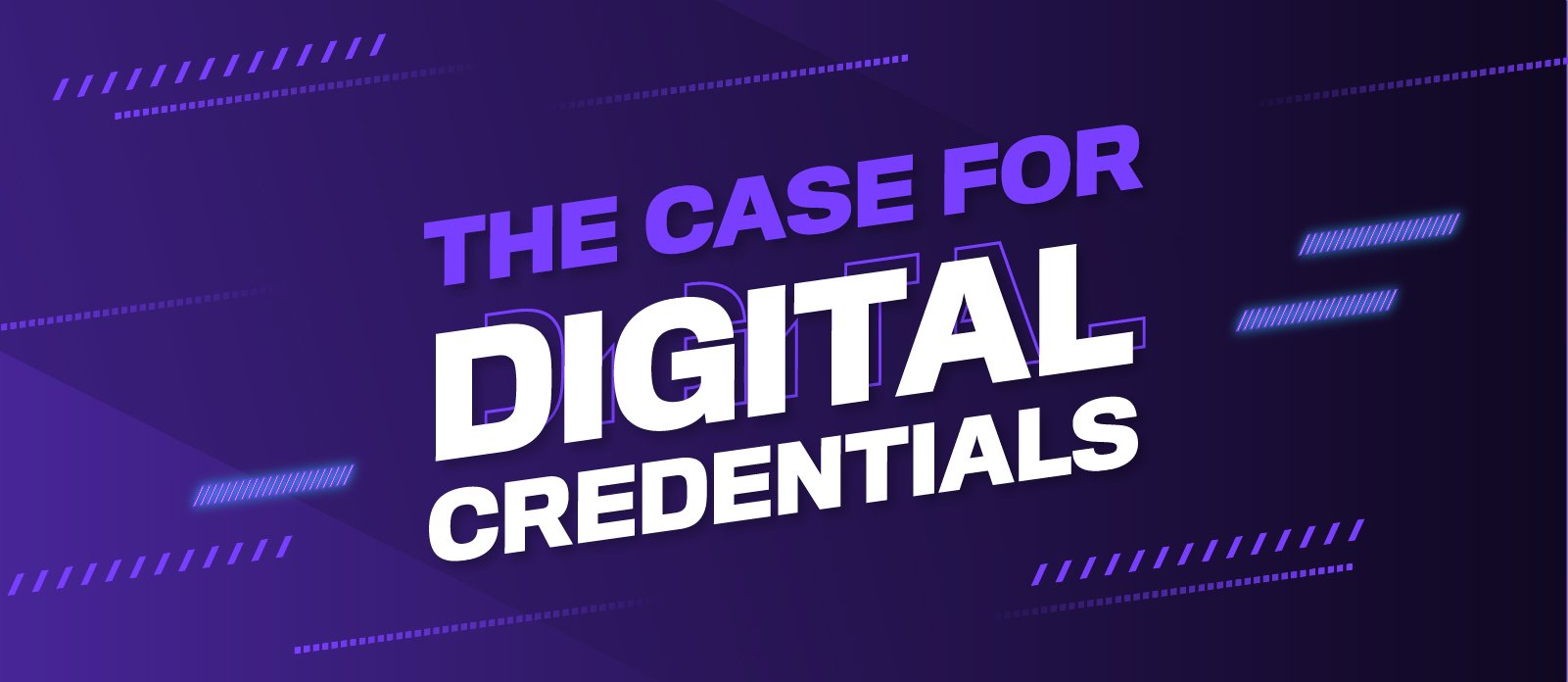
Translating a student’s higher education outcomes into terms that employers can actually understand (and trust) is a challenge for all parties involved. Job-seeking students are eager to share what they know, but employers often struggle to understand and verify the student’s capabilities.
I recently sat down with Credly’s Chief Success Strategist, Dr. Susan Manning to discuss what “digital credentials” can do to help create a common language, and to bridge the communications gap between employers and prospective employees.
Susan has taught graduate courses and authored books in instructional design, technology tools, universal design for learning. Susan earned her Doctorate in Adult Education, her Master’s in College Student Personnel, and is a certified Credentialing Specialist.
If you’d like, you can listen to our conversation in podcast form here:
What follows is part 1 of a lightly-edited transcript of our conversation.
Ian Evenstar: I am delighted to sit down with Susan Manning, who is the chief success strategist at Credly, here to discuss how digital credentials can help prepare individuals for the job day one and leverage their talents, whether that's after high school or college. For those listeners who aren't familiar with Credly, what is Credly?
Susan Manning: Our mission is to help people connect their verified abilities to opportunities. So what we are is a platform that allows employers to access individuals, and individuals to access employers. We were founded on helping people connect their verified abilities to opportunities. That could be a learning opportunity or a professional opportunity. Ultimately, our mission is to bring equity and access to everyone in the workforce. We're a platform that allows individuals to access their digital credentials and use them in a meaningful way, and to make those visible to employers, who can then verify those credentials. So it's a roundabout existence, and we are the platform that makes all of that happen.
Like what you're reading? Sign up for the Higher Education News Brief, and receive the top stories from across the landscape of Higher Education every Monday.
IE: That's an incredible mission, and I know how difficult it is, as an employer myself, to really know how to measure those verifiable skills. How to read into, say, a resume or a bio or a long list of experiences and really sort out exactly where those skills are. So Credly is a baseline or equitable, way to measure and gauge one's abilities and skills?
SM: Yes. And what sets it apart is that these are verified. So I could put on my resume that I'm an expert in, let's say, Excel, but you really have no way of verifying that unless I have a digital credential that proves that, maybe I went through a curriculum, and then I was tested on that skill. So you know that the person who has the skill has been verified.
IE: You've mentioned that they're verifiable, they're transferable, so you take them with you. They give the employer an immediate grasp of what those skillsets are. And it's also a way for individuals to continue to level up their learning and showcase that. Are there any other reasons why digital credentials are so important?
SM: I think in the higher education world, credentials can be smaller components of one's ongoing learning pathway. So let's say I'm working on a degree, and within that degree, I'm gaining really valuable skills. Maybe I could add a digital credential that would mark that skillset in such a way that I could use it right away, even before I complete an academic program. For example, maybe I'm interested in visual design, and as part of my coursework, I'm learning Adobe products. What if I were also offered the opportunity to test and become a certified illustrator? And then I have that discreet credential, but it is verified, and I can continue my academic journey while I'm putting that credential to work, maybe looking for employment, or using it in some way to level up on my job. So I think that within the world of education, digital credentials can be a small piece that is very worthwhile to the learner.
IE: I'm a faculty member at Cal State, LA, and I teach design and business practices for creative professionals. And I've been able to fold in credentials as part of the assessment. So instead of just taking a quiz to spot-check knowledge, and making sure that you're heading towards a learning outcome, the learner, or the student, also gets to pick up this credential and kind of tuck it away in some sense building their value as a professional, and maybe making that transition between college and employment a little bit easier as part of that process.
SM: I think the students also appreciate it because there is that concern of, "Am I going to get the value, or extract the value, out of my education that I'm ultimately going to need in order to make a smooth transition and pay off all my student debt?" I think they're important in that sense, too, of providing value and getting, if you will, a little bit of a return on that investment.
IE: I think there are a lot of areas where new graduates come wanting to jump into the workplace, but they may not be given the opportunities without having had some experience. And this is a way of demonstrating that competency. When you think about skills like project management, business analysis, marketing, specifically social media marketing, all of those are areas that can have digital credentials and the competencies can be documented. You've mentioned a lot of hard skills or, in some ways, quantifiable skills and talents. Do these also work for, say, the liberal arts, someone who's maybe studying philosophy or literature for example?
SM: I think there are some transferable skills like critical thinking. There are definitely skills such as critical thinking, communication skills, emotional intelligence, those that again can be observed over time that higher education can also acknowledge, and not just higher education. I think this can be done in a variety of settings where you can observe as long as you are running a valid assessment in the observation of those skills, you can still put that into a digital credential and represent that person's abilities.
IE: And is it up to, let's say, the training partner or the school, the college, the employer? Is it up to them to design the credential with their rubric, or is it something that they CAN pull from a catalog? What are the nuts and bolts of how this may work if someone wanted to implement digital credentialing?
SM: If you are the issuer, then yes. You need to put together that experience and the assessment that goes as part of that. But there are tools that could help. I'm thinking about standards for higher education that speak to competencies like communication or professionalism or leadership and what that means. So there are published rubrics that an organization could tap into to set the criteria for their own credentials.
IE: And then you mentioned a verification. Is there some potential for misuse or counterfeiting? How do you protect against anyone sharing or in some way passing it off as something they've earned when they actually haven't earned it?
SM: When a digital credential is created, if it follows the open-badge standards, there are certain pieces of metadata that are baked into that credential that can't be separated. So if someone just showed an image of a badge, that doesn't mean anything. That's just a picture of the badge. But if they share it in such a way that is legitimate, you're going to be able to click and see the issuer, the earner, the data, the criteria, a description of what went into that. It could include endorsements. It could include specific skills. It might have attributes like how long did this take, is it foundational or advanced? There's a lot of metadata that can get baked into a digital credential, and that’s what keeps it from being passed as fraud.
[Part 2 of our conversation can be found here.]
Need Help Developing Digital Credentials?
Show off the skills that students learn at your college and take your digital marketing to the next level.









